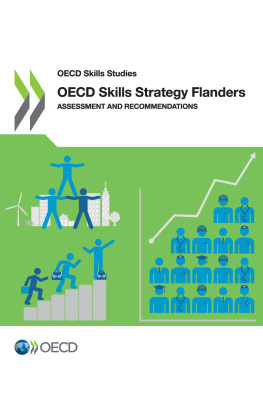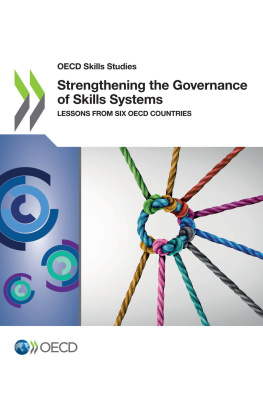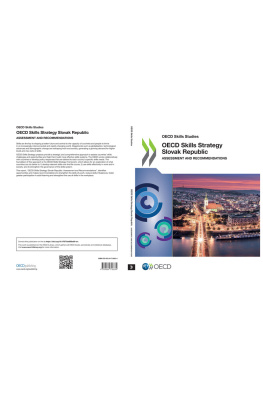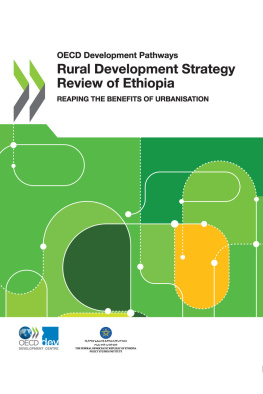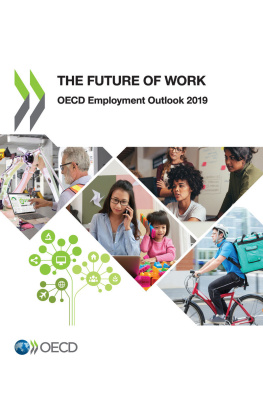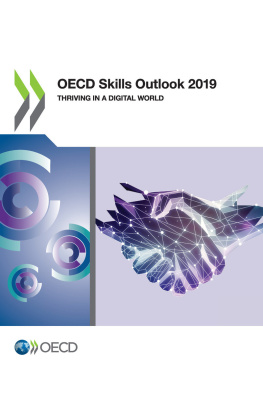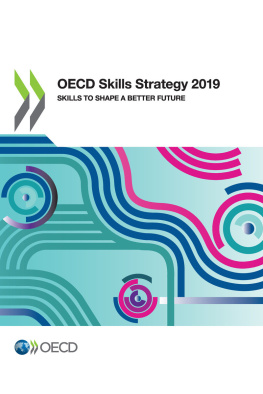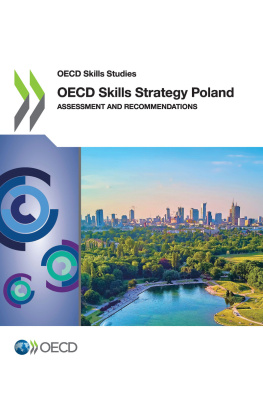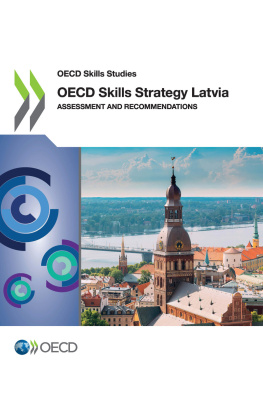OECD - OECD Skills Strategy Flanders
Here you can read online OECD - OECD Skills Strategy Flanders full text of the book (entire story) in english for free. Download pdf and epub, get meaning, cover and reviews about this ebook. year: 2019, publisher: OECD Publishing, genre: Politics. Description of the work, (preface) as well as reviews are available. Best literature library LitArk.com created for fans of good reading and offers a wide selection of genres:
Romance novel
Science fiction
Adventure
Detective
Science
History
Home and family
Prose
Art
Politics
Computer
Non-fiction
Religion
Business
Children
Humor
Choose a favorite category and find really read worthwhile books. Enjoy immersion in the world of imagination, feel the emotions of the characters or learn something new for yourself, make an fascinating discovery.
OECD Skills Strategy Flanders: summary, description and annotation
We offer to read an annotation, description, summary or preface (depends on what the author of the book "OECD Skills Strategy Flanders" wrote himself). If you haven't found the necessary information about the book — write in the comments, we will try to find it.
OECD: author's other books
Who wrote OECD Skills Strategy Flanders? Find out the surname, the name of the author of the book and a list of all author's works by series.
OECD Skills Strategy Flanders — read online for free the complete book (whole text) full work
Below is the text of the book, divided by pages. System saving the place of the last page read, allows you to conveniently read the book "OECD Skills Strategy Flanders" online for free, without having to search again every time where you left off. Put a bookmark, and you can go to the page where you finished reading at any time.
Font size:
Interval:
Bookmark:
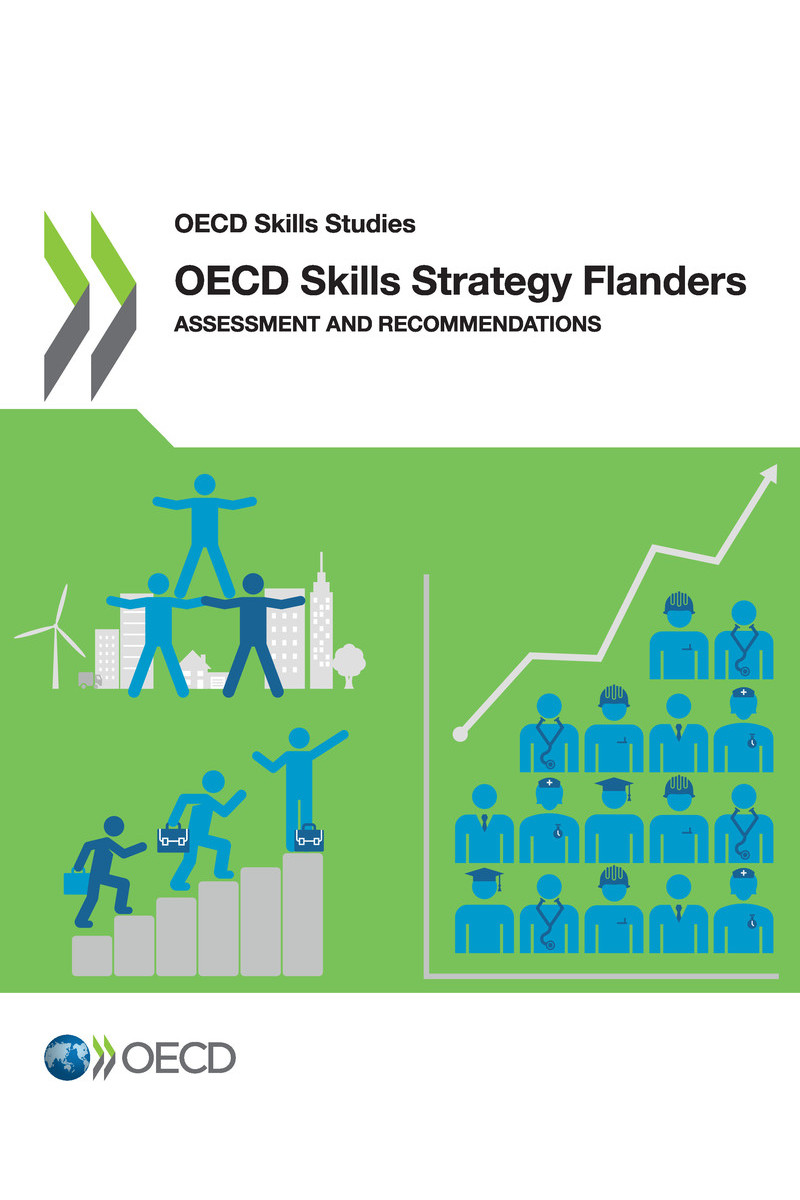
OECD (2019), OECD Skills Strategy Flanders: Assessment and Recommendations , OECD Skills Studies, OECD Publishing, Paris.
https://doi.org/10.1787/9789264309791-en
Peoples skills are at the heart of Flanderss vision for the future, which is a society where people learn for and through life, are innovative, trust one another, enjoy a high quality of life, and embrace their unique identity and culture.
As globalisation and digitalisation transform jobs, how societies function and how people interact, the impetus for getting skills right is growing. People will need higher levels of skills and a well-rounded set of skills, including cognitive, social and emotional, and job-specific skills, to flourish in life both in and out of work.
Flanders performs well compared to most OECD countries on most measures of skills development and use. The skills proficiency of Flemish adults exceeds the OECD average and skills mismatch is low. High-performance work practices that stimulate the use of skills are widely adopted by firms in Flanders. There are many good governance arrangements in place to support co-ordination and collaboration in adult learning across government departments, levels of government and with stakeholders. Financial incentives for adult learning help to reduce the burden for individuals and employers, promote cost-sharing and reduce under-investment.
However, some challenges remain. Adult learning could be strengthened, in particular for older workers, immigrants, adults in flexible forms of employment and low-skilled adults. Shortages in professional, technical and scientific occupations persist due to a low number of graduates in science, technology, engineering and mathematics (STEM). The use of skills at work could be further enhanced, especially as productivity growth has slowed in recent years. A comprehensive vision for adult learning that stimulates collaboration within government and with stakeholders is lacking. Existing financial support for adults who are most in need of adult learning is not sufficiently taken up by those most in need.
Recent and planned policy reforms show great promise, but more needs to be done to ensure better skills outcomes. The government and all relevant stakeholders should continue to work in partnerships that involve every level of government, education and training providers, employers, trade unions, the non-profit sector and learners.
While no single action is the answer, a clear vision and concrete steps taken together by all stakeholders can ensure that Flanders will bridge the skills gap. Citizens of all ages and backgrounds should be able to develop, activate and use their skills effectively to take up opportunities of a rapidly changing society.
After widespread engagement in Flanders and consideration of numerous international examples, the OECD has provided several recommendations in this report to help Flanders along this path.
The OECD stands ready to support Flanders as it seeks to implement better skills policies for better lives.
This report is part of a series of country projects within the OECD programme of work on Building Effective National Skills Strategies.
The OECD is grateful to the Flemish National Project Team for its invaluable guidance and input throughout the project, and its help in convening and organising the stakeholder workshops. We are particularly grateful to the National Project Leader, Willem De Klerck, and the National Project Co-ordinator, Raf Boey, both from the Flemish Department for Work and Social Economy, for their strong leadership and co-ordination of the National Project Team, which included: Jeroen Backs and Caroline Gijselinckx (Department of Education and Training); Jort Ory, Isabel Gaisbauer, Anneleen Peeters and Sven De Haeck (VDAB); Mieke Valcke and Sandra Hellings (SERV); Reinhilde Pulinx and Koen Stassen (VLOR); Philippe Nys and Tom Tournicourt (Department of Economy, Science and Innovation); An Katrien Sodermans (Syntra Flanders); Karolien Kaisz (Department of Finance and Budget); Sarah Vansteenkiste (Centre for Expertise on Labour Market Monitoring); and Ann Van den Cruyce and Ariane Rober (Department of Work and Social Economy).
The OECD team wishes to thank Minister Hilde Crevits, Vice Minister-President of the Flemish Government and Flemish Minister for Education, and Minister Philippe Muyters, Flemish Minister for Work, Economy, Innovation and Sports, for their continued commitment to this project. We also thank Dries Willems, Permanent Representative of the Flemish Government to the OECD, for his support during the project.
Our warm thanks go to the many representatives of government agencies, education and training institutions, businesses and business associations, unions and community associations, think tanks and other organisations, and adult learners who generously shared their insights during bilateral interviews with the OECD team in Brussels and Ghent and for their written input and good practices. A full list of participating organisations and stakeholders is included in Annex D of this report. We would also like to take the opportunity to thank the staff of the Department of Work and Social Economy for their excellent organisation of the stakeholder workshops and for their hospitality in hosting these events.
We are grateful to the Directorate-General for Education and Culture and the Directorate-General for Employment, Social Affairs and Inclusion of the European Commission for contributing both financial support and expertise throughout the project. We are especially grateful to Michael Horgan and Kasia Jurczak.
Font size:
Interval:
Bookmark:
Similar books «OECD Skills Strategy Flanders»
Look at similar books to OECD Skills Strategy Flanders. We have selected literature similar in name and meaning in the hope of providing readers with more options to find new, interesting, not yet read works.
Discussion, reviews of the book OECD Skills Strategy Flanders and just readers' own opinions. Leave your comments, write what you think about the work, its meaning or the main characters. Specify what exactly you liked and what you didn't like, and why you think so.

